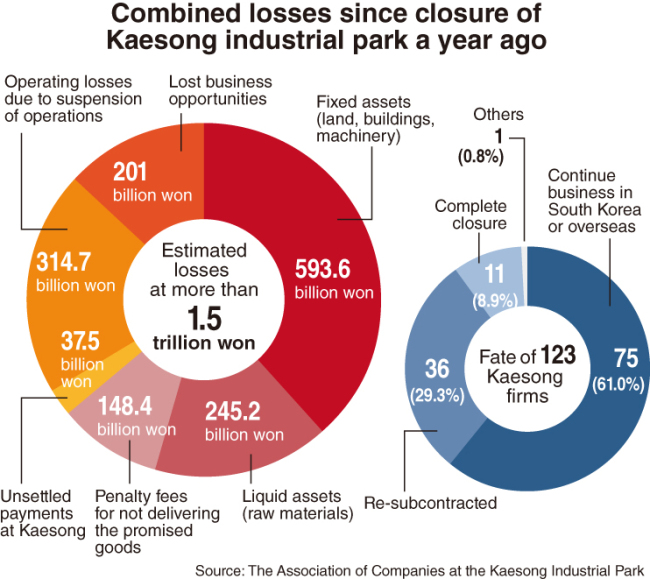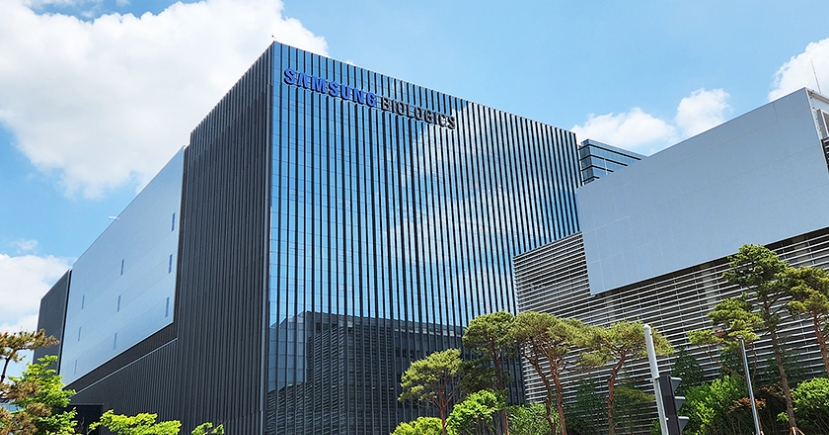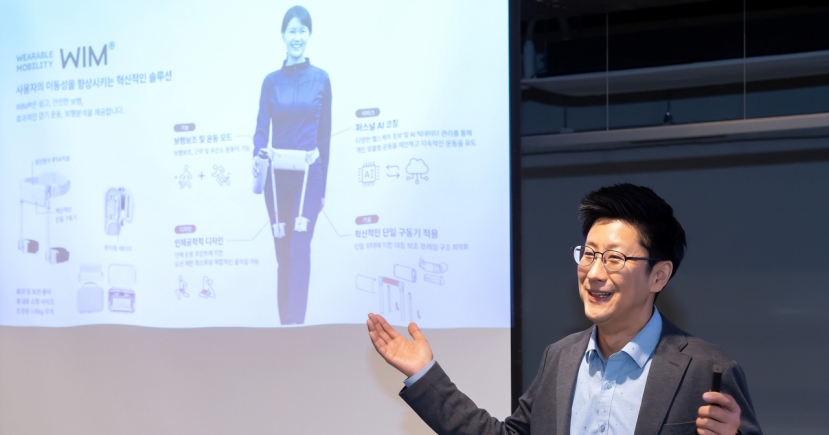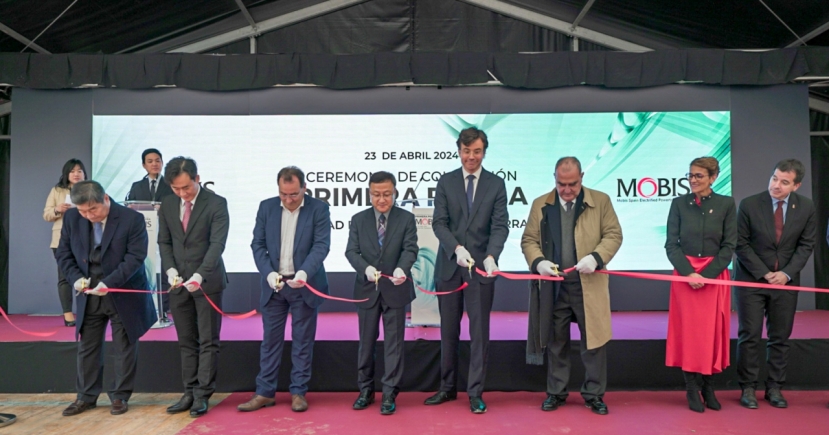Industrials
[KAESONG] Kaesong firms desperate for survival after industrial park shutdown
[THE INVESTOR] Ok Sung-seok, CEO of shirt maker Nine Mode, which used to hire North Korean workers in the inter-Korean industrial park in Kaesong, says his business, now in Vietnam, is still suffering financial difficulties due to lack of compensation for lost assets and opportunities after the complex’s shutdown a year ago.
Nine Mode is among 123 South Korean firms, which were forced to withdraw from Kaesong on Feb. 10 last year, with the Park Geun-hye administration’s order to close the park in response to Pyongyang’s nuclear test and long-range rocket launch.
 |
The government’s decision did not allow enough time for Kaeseong firms to bring home important company documents, fabric or machinery, according to Ok, who recalled the evacuation as a hasty and unexpected one.
“We left there all our assets – buildings, sewing machines and fabric. I was able to move our business to Vietnam last year but we’re still financially struggling because what we received from the government as so-called ‘compensation’ is almost nothing,” said Ok, the former vice president of an association of South Korean firms in the Kaeseong park.
“We strongly demand the government fully compensate us for our losses incurred by the sudden Kaesong closure.”
Of the 123 Kaesong firms, 11 firms have completely closed while the rest relocated their factories to other regions in South Korea or overseas, such as Vietnam.
Those who run factories in South Korea find it difficult to make profits due to higher labor costs, particularly in a business environment where textile and sewing industries have long declined, Ok said.
Kaesong firms claim their combined losses incurred by the park’s closure have mounted to 1.5 trillion won, while the Unification Ministry estimates the losses at 777.9 billion won.
The government has provided 562.5 billion won compensation through the Export-Import Bank of Korea’s Inter-Korean Economic Cooperation Fund, a third what firms asked for, in 2016, according to the bank’s report submitted to Rep. Kim Jong-min of the main opposition Democratic Party of Korea.
The association says 1.5 trillion won losses include 593.6 billion won in fixed assets such as buildings and machinery, 245.2 billion won in raw materials such as fabric, 148.4 billion won in penalty fees for not delivering the promised goods and 314.7 billion won in operating losses.
However, the government says it cannot compensate for operating losses and penalty fees which were “indirect damages.”
“It is not right to support operating losses because the numbers do not include business risks that the Kaesong firms should have taken,” said an official at the Unification Ministry, who asked to be unnamed.
“Some of their losses were also covered by (Eximbank’s) insurances on the inter-Korean cooperation and trade fund. The government even provided special support for some firms which did not subscribe the insurance policy,” the official said.
Despite all this, Ok said he is willing to give up his Vietnamese factory and return to Kaesong, if the park is reopened.
Meanwhile, the closure of the Kaesong park also seems to have taken a toll on the North Korean economy, but not a grave enough one to hurt it, experts said.
“North Korean industrial goods greatly improved in quality since Kim Jong-un took power. I’m sure those skills were learned from Kaesong and spread to region to region in the North,” said Cheong Seong-chang, a senior researcher at the Sejong Institute.
“Given that Kaesong also contributed to regional economic booms in the North, Pyongyang is still hoping to resume the inter-Korean industrial park.”
But he noted that the direct impact on the North is limited as the foreign capital that North Korean workers earned from the Kaesong park is only one-fiftieth of that earned from economic exchanges with China.
By Kim Yoon-mi/The Korea Herald (yoonmi@heraldcorp.com)


![[From the Scene] KG Mobility poised to take next leap](http://res.heraldm.com/phpwas/restmb_idxmake.php?idx=151&simg=/content/image/2024/04/24/20240424050621_0.jpg)





